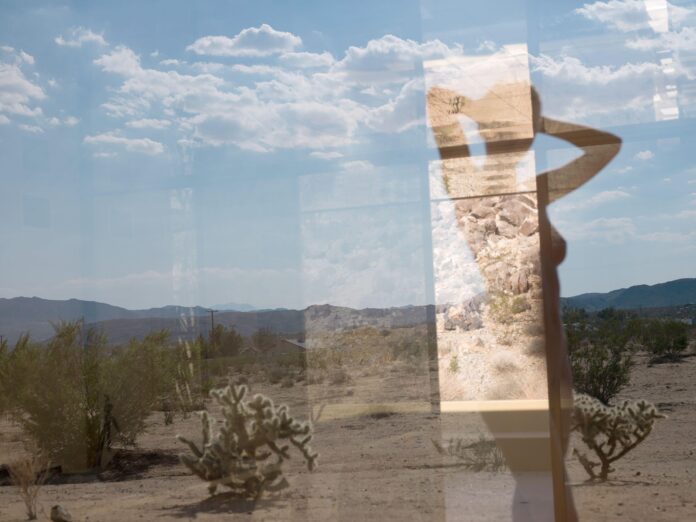“I’m calling Ableism,” the photographer Robert Andy Coombs steadily declares in a video posted to his “backup” Instagram account. Coombs’s main account was deleted after sharing a photo of his work from New York Times-featured exhibition Pure Joy at 1969 Gallery in New York. A self-described “gay, disabled artist,” Coombs is no stranger to Instagram censorship, but there was something different this time. Increasingly, galleries and exhibitions are finding themselves at the centre of heavy-handed suppression on the platform.
The Little Black Gallery
The Little Black Gallery in London had its account deleted earlier this month after making a congratulatory post about its partner gallery FAS44 in Las Vegas. The post featured a photograph, which showed a body’s silhouette reflected in a window, by the renowned artist Mona Kuhn from the Vegas gallery’s solo exhibition of the artist that was on show at the time. The image was flagged by Instagram as “Adult Sexual Solicitation”. The Little Black Gallery, which features gay and queer photographers, has faced account deletion in the past but persevered. The co-owner, Ghislain Pascal, says: “As a photography gallery, publisher, educator and art consultant trying to promote fine art photography it is very frustrating. There does not seem to be any common sense [with Instagram].”

Felicita Maynard’s Untitled (Palmira) (2018) was part of the show Hands Off My Cuntry Courtesy of the artist
Hands Off My Cuntry
Organised by Savannah Spirit, the exhibition Hands Off My Cuntry on the online platform Artsy responds directly to the overturning of the Roe vs Wade law in the US, which had guaranteed the constitutional right to abortion for last 49 years. Including artists such as Betty Tompkins and Marilyn Minter, the exhibition opened in July and immediately faced difficulties.
“As I was posting work from the show and announcing it over social media I noticed a suppression of views [compared] to the ratio of my followers… I then posted a carousel of images that included a self-portrait of non-binary photographer, Felli Maynard, their hand placed above their genital area, nipples exposed. This photograph caused the entire post to be deleted.”

Aline Alagem’s Pink Lovers (2021) featured in Redd Gallery’s show Kink Courtesy of Redd Gallery
KINK
Lest you believe that this is a matter of artificial intelligence confusion over art photography compared with traditional media, RedD Gallery in Crete, Greece, faced significant obstacles in the promotion of their exhibition KINK. The exhibition featured paintings, drawings, textile and sculptural pieces, and while they centred on themes of kink and pleasure, the context and nature of the imagery is obvious. While Instagram’s guidelines are still vague on nudity and sexual activity in art photography, their guidelines now explicitly allow for “real world art that depicts implied or explicit sexual activity”. Expressing her frustration over Instagram’s removals despite the allowable “real world art” nature of the show’s artwork, gallery director Denia Kazakou says “the works shown [in the posts] are clearly art and not photos.”
Artists need a platform to be seen; before Instagram, that platform was usually the exhibition space. Integral to the existence and success of art that pushes boundaries, powerful exhibitions naturally pull together artists who are speaking on provocative themes. Therefore, it should come as no surprise that the exhibitions that are facing censorship are those that are tackling themes of representation, identity, disability, abortion and sexuality—all rights that are under threat and debate and, therefore, are fertile ground for artists.
Although they portend to protect and support art, the increased suppression of certain galleries and exhibitions on Instagram paints a picture of an increasingly sterile art world to come. As Pascal warns: “The last few years have been tough enough for artists and galleries, and it looks like they are going to get tough again with talks of a long recession, without so-called liberal social media companies censoring art.”

























